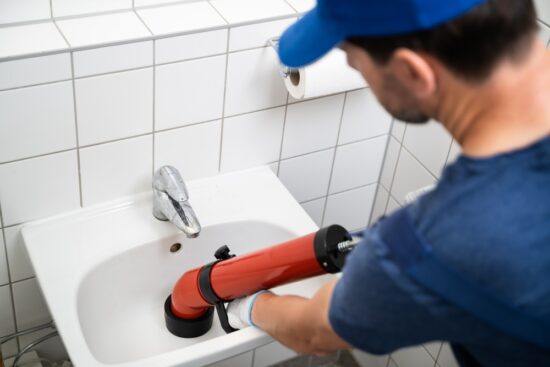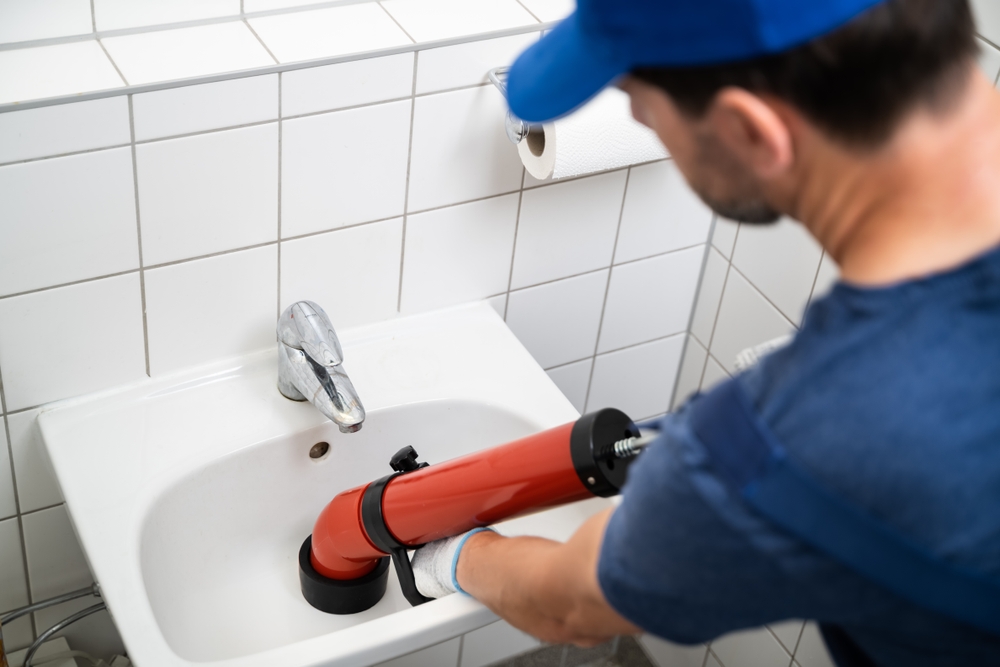
Drain cleaners are essential tools for maintaining clear and functional plumbing systems in homes and businesses throughout New Haven County. Whether you are dealing with a clogged sink, a slow-draining shower, or a backed-up toilet, understanding how drain cleaners work can help you address these issues effectively and prevent future problems. In this guide, we will explore the types of drain cleaners, their mechanisms, and tips for safe and efficient use.
Types of Drain Cleaners
1. Chemical Drain Cleaners
Chemical drain cleaners are some of the most commonly used products for unclogging drains. They work by breaking down the substances causing the blockage. These cleaners typically come in three forms:
- Caustic Cleaners: Contain substances like lye or potash, which generate heat and break down organic materials like grease and hair.
- Oxidizing Cleaners: Use chemicals like bleach or peroxide to oxidize and dissolve debris.
- Acidic Cleaners: Often used by professionals, these contain sulfuric or hydrochloric acid to dissolve tough clogs.
2. Enzymatic Drain Cleaners
Enzymatic cleaners are eco-friendly options that use natural enzymes and bacteria to break down organic matter. They are ideal for regular maintenance but may not be as effective for severe clogs.
3. Mechanical Drain Cleaners
Mechanical methods involve tools like plungers, drain snakes, and hydro jets to physically remove blockages. These are often used when chemical or enzymatic cleaners are insufficient.
How Chemical Drain Cleaners Work
1. Breaking Down Organic Matter
Chemical cleaners dissolve materials such as hair, grease, soap scum, and food particles by producing heat or chemical reactions. This process loosens the blockage, allowing water to flow freely again.
2. Oxidation and Heat Generation
Some chemical cleaners rely on oxidation, which involves releasing oxygen to break down organic compounds. Others generate heat to melt or dissolve clogs.
3. Clearing Residual Build-Up
Many chemical cleaners also work to clean the pipe walls, reducing the risk of future clogs by removing residue.
Advantages and Limitations
Advantages:
- Quick and effective for minor to moderate clogs.
- Widely available and easy to use.
- Can be used on a variety of drain types.
Limitations:
- May damage pipes if overused or used incorrectly.
- Not suitable for all materials (e.g., older plumbing systems).
- Potentially harmful to the environment and personal health.
How to Use Drain Cleaners Safely
1. Read the Label
Always follow the manufacturer’s instructions for proper use and dosage.
2. Wear Protective Gear
Use gloves and safety goggles to protect your skin and eyes from splashes.
3. Ventilate the Area
Chemical fumes can be harmful. Open windows and use fans to improve air circulation.
4. Avoid Mixing Products
Combining different drain cleaners can cause dangerous chemical reactions.
5. Dispose of Waste Properly
Do not pour excess cleaner down the drain; follow local disposal guidelines.
Preventing Drain Clogs in New Haven County
1. Regular Maintenance
Use enzymatic cleaners or baking soda and vinegar periodically to prevent build-up.
2. Install Drain Covers
Keep hair, food particles, and debris out of your drains with mesh or perforated drain covers.
3. Avoid Pouring Grease or Oils
Dispose of cooking oils and grease in sealed containers instead of pouring them down the drain.
4. Flush Drains with Hot Water
Run hot water down your drains weekly to dissolve minor grease and soap build-up.
When to Call a Professional
If your clog persists despite using drain cleaners or if you notice recurring issues, it may be time to call a professional plumber in New Haven County. They have the tools and expertise to address severe blockages, damaged pipes, or underlying plumbing problems.
Conclusion
Drain cleaners play a vital role in maintaining the plumbing systems of New Haven County homes and businesses. By understanding the different types of cleaners and their mechanisms, you can choose the right solution for your needs. Practice regular maintenance and follow safety guidelines to keep your drains clear and functional. For persistent or complex issues, don’t hesitate to seek professional assistance.

